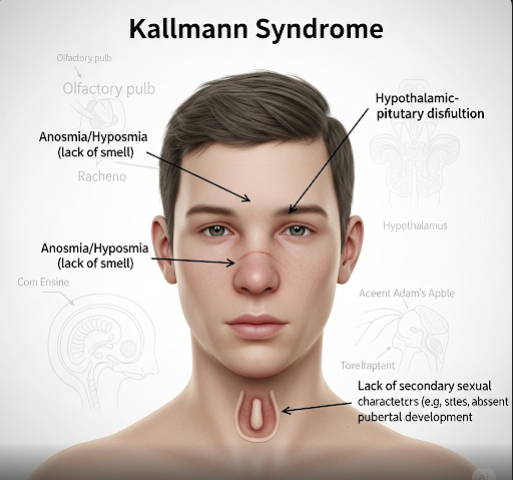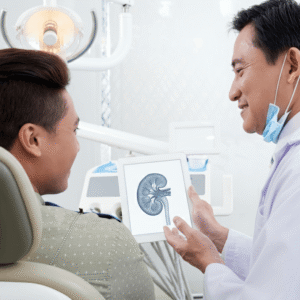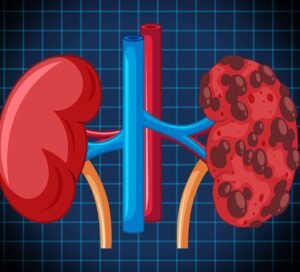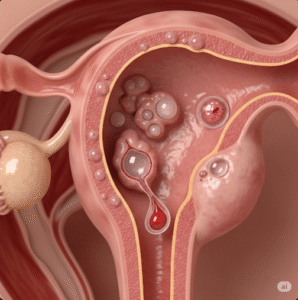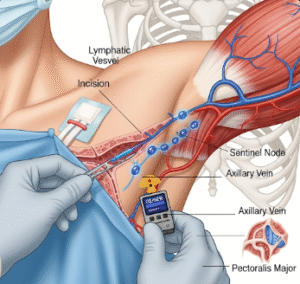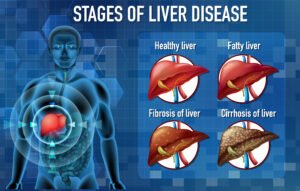Overview
Kallmann Syndrome is a rare genetic disorder characterized by delayed or absent puberty and an impaired sense of smell (anosmia or hyposmia). It results from a failure of certain nerve cells to develop or migrate properly during fetal development, affecting hormone production related to sexual development. In Korea, endocrinologists and genetic specialists provide thorough diagnosis and personalized hormone replacement therapies to help affected individuals achieve normal development and fertility.
What is Kallmann Syndrome?
Kallmann Syndrome is a form of hypogonadotropic hypogonadism caused by the inadequate production or secretion of gonadotropin-releasing hormone (GnRH) from the hypothalamus. This hormone controls the release of other hormones critical for puberty and reproductive function. The syndrome is also marked by a reduced or absent sense of smell due to abnormal development of the olfactory bulbs.
Symptoms
- Delayed or absent puberty (lack of breast development in girls, no testicular enlargement in boys)
- Anosmia (complete loss of smell) or hyposmia (reduced smell)
- Infertility due to low levels of sex hormones
- Underdeveloped secondary sexual characteristics (e.g., facial hair, voice changes)
- Sometimes cleft lip/palate, hearing loss, dental agenesis, or skeletal abnormalities
- In some cases, cryptorchidism (undescended testes) in males
Causes
- Genetic mutations affecting development or migration of GnRH neurons and olfactory nerves, involving genes such as KAL1, FGFR1, PROKR2, and others
- Inherited in X-linked, autosomal dominant, or autosomal recessive patterns depending on the mutated gene
Risk Factors
- Family history of Kallmann Syndrome or related hypogonadotropic hypogonadism
- Genetic predisposition
Complications
- Delayed or absent sexual maturation without treatment
- Infertility due to impaired hormone production
- Psychosocial issues related to delayed puberty and infertility
- Associated anomalies like hearing loss or craniofacial defects can affect quality of life
Prevention
- No known prevention due to genetic causes
- Early diagnosis and treatment can prevent complications related to delayed puberty and improve fertility
Treatment Options in Korea
Korean endocrinology and fertility specialists offer comprehensive care for Kallmann Syndrome:
- Hormone Replacement Therapy: Testosterone in males and estrogen/progesterone in females to induce and maintain secondary sexual characteristics.
- Fertility Treatments: Gonadotropin injections or pulsatile GnRH therapy to stimulate sperm production and ovulation for conception.
- Olfactory Testing: Evaluation and counseling for anosmia-related quality of life issues.
- Genetic Counseling: For affected families regarding inheritance patterns and risks.
- Psychological Support: Counseling and support groups to help manage psychosocial effects.

